10 Symptoms of Herpes You Should Be Aware Of
Herpes is a highly contagious viral infection caused by the herpes simplex virus (HSV). There are two types of herpes: HSV-1, which usually causes oral herpes, and HSV-2, which typically causes genital herpes. According to the World Health Organization, around 67% of the global population under 50 years old has HSV-1, while 11% of people aged 15-49 have HSV-2[[1]]. Although herpes is a common infection, many people are unaware they have it, as symptoms can be mild or nonexistent. This article will discuss 10 common symptoms of herpes to help you recognize the infection.
Painful Blisters or Sores
One of the most recognizable symptoms of herpes is the appearance of painful blisters or sores on or around the mouth (HSV-1) or genitals (HSV-2)[[2]]. These blisters can break open, leaving painful ulcers that may take several weeks to heal.
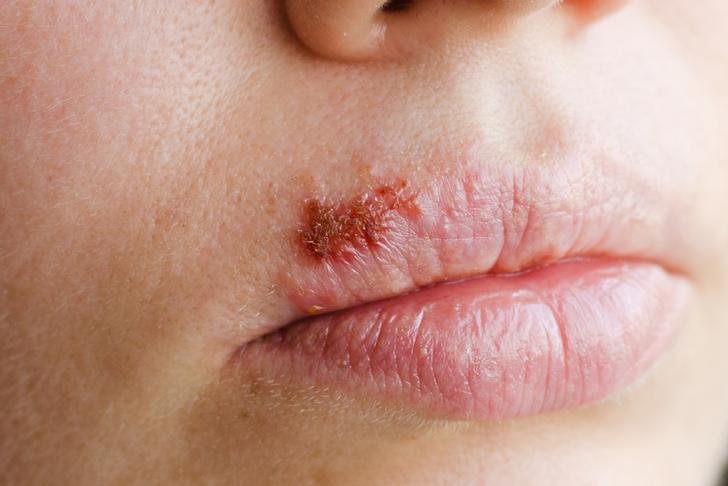
Advertisement
Tingling or Itching
Before the appearance of blisters, many people with herpes experience tingling, itching, or burning sensations in the affected area[[2]]. This is known as the prodromal stage and can serve as a warning sign that an outbreak is imminent.

Advertisement
Flu-like Symptoms
During the initial outbreak, some individuals may experience flu-like symptoms, including fever, body aches, and swollen lymph nodes[[2]]. These symptoms usually subside as the body begins to fight the infection.

Advertisement
Painful Urination
Genital herpes can cause painful urination, especially when the urine comes into contact with open sores[[4]]. This can be a particularly distressing symptom for those affected.

Advertisement
Vaginal Discharge
Women with genital herpes may experience an increase in vaginal discharge, which can be a sign of the infection[[4]]. This symptom can be easily mistaken for other conditions, so it is essential to consult a healthcare professional for an accurate diagnosis.

Advertisement
Cold Sores
Cold sores, also known as fever blisters, are a common symptom of oral herpes (HSV-1)[[3]]. These small, fluid-filled blisters typically appear on or around the lips and can be painful and unsightly.
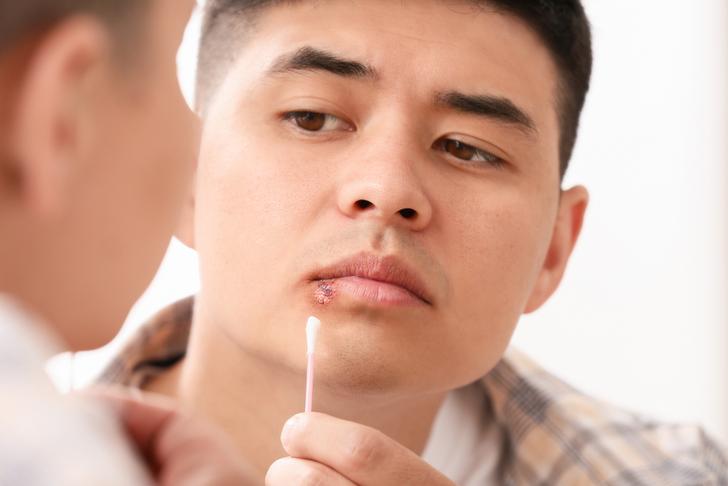
Advertisement
Redness and Swelling
The skin around the affected area may become red and swollen during a herpes outbreak[[2]]. This inflammation can cause discomfort and may be accompanied by itching or burning sensations.
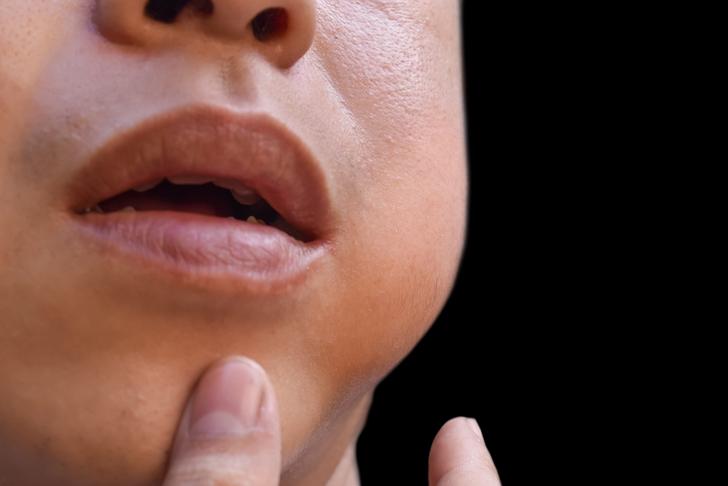
Advertisement
Cracked, Dry, or Scaly Skin
As the herpes sores begin to heal, the skin may become cracked, dry, or scaly[[2]]. This can be uncomfortable and may prolong the healing process.

Advertisement
Headaches
Some individuals with herpes may experience headaches during an outbreak[[2]]. This symptom is more common during the initial infection and may be accompanied by other flu-like symptoms.

Advertisement
Recurrent Outbreaks
Herpes is a lifelong infection, and once contracted, the virus remains dormant in the body. Outbreaks can recur throughout a person’s life, although the frequency and severity of outbreaks tend to decrease over time[[4]]. Triggers for recurrent outbreaks can include stress, illness, and hormonal changes.
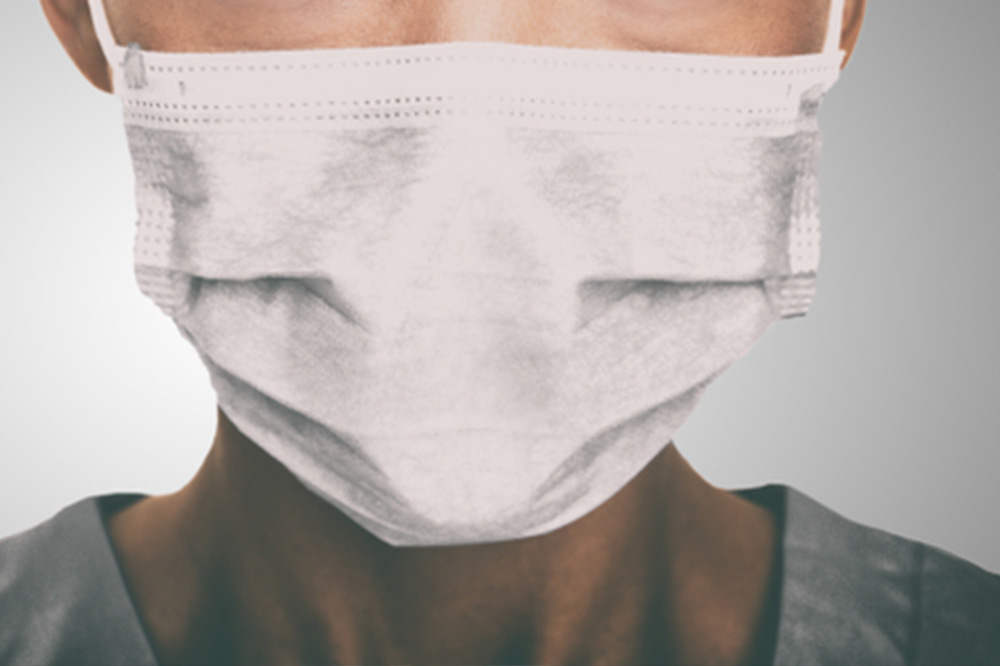
Advertisement
Conclusion
In conclusion, it is essential to be aware of the common symptoms of herpes, as early detection and treatment can help manage the infection and reduce the risk of transmission to others. If you suspect you have herpes or are experiencing any of the symptoms mentioned above, consult a healthcare professional for an accurate diagnosis and appropriate treatment options.
Awareness of common herpes symptoms is just one aspect of addressing this viral infection. It is also essential to understand the treatment options and preventive measures that can be taken to manage the condition and reduce the risk of transmission to others. Antiviral medications such as acyclovir, valacyclovir, and famciclovir can help shorten the duration of outbreaks and alleviate symptoms, as well as minimize the chances of passing the infection to a partner[[4]]. In addition to medical treatments, maintaining a healthy lifestyle and learning to manage stress effectively can contribute to a stronger immune system, which is crucial for keeping herpes outbreaks at bay.
When dealing with herpes, it is essential to differentiate between this viral infection and other similar conditions that present with comparable symptoms. Some conditions that can cause blister-like sores or redness and itching include impetigo, allergy rashes, or yeast infections. Inaccurate self-diagnosis may result in improper treatment or neglecting the actual cause of these symptoms. Always consult with your healthcare professional, as they will be able to correctly identify the cause and recommend the most appropriate treatment plan.
A balanced diet can also play a critical role in managing herpes outbreaks, as certain foods are thought to have an impact on the frequency and severity of symptoms. Consuming foods high in the amino acid lysine, such as lean meats, fish, beans, and legumes, may help prevent or decrease outbreaks. On the other hand, foods high in the amino acid arginine, like chocolate, nuts, seeds, and gelatin, may increase the severity and frequency of an outbreak. While scientific evidence is limited about these food associations, there is no harm in incorporating healthy dietary habits into your lifestyle for overall well-being.
Lastly, it’s essential to practice safe sex to minimize the risk of transmitting genital herpes to a partner. Using condoms can help reduce the chance of spreading the infection, although they may not provide complete protection if the affected area is not fully covered. Communication with your partner is crucial. Openly discussing the condition and taking necessary precautions can maintain a healthy and fulfilling relationship, despite the presence of herpes.
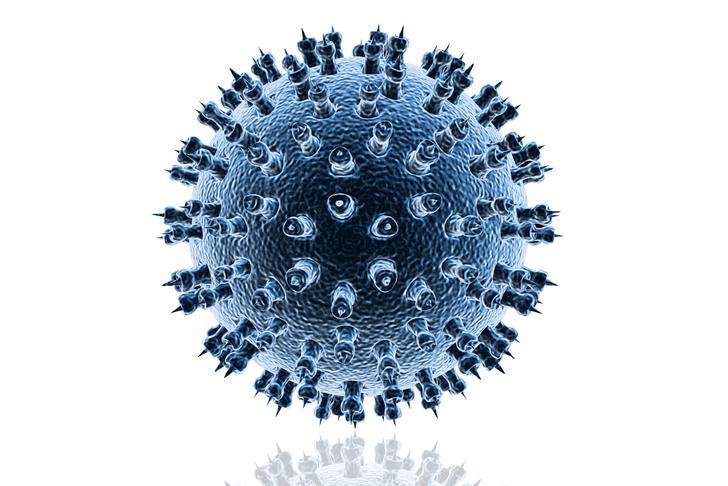
Advertisement





